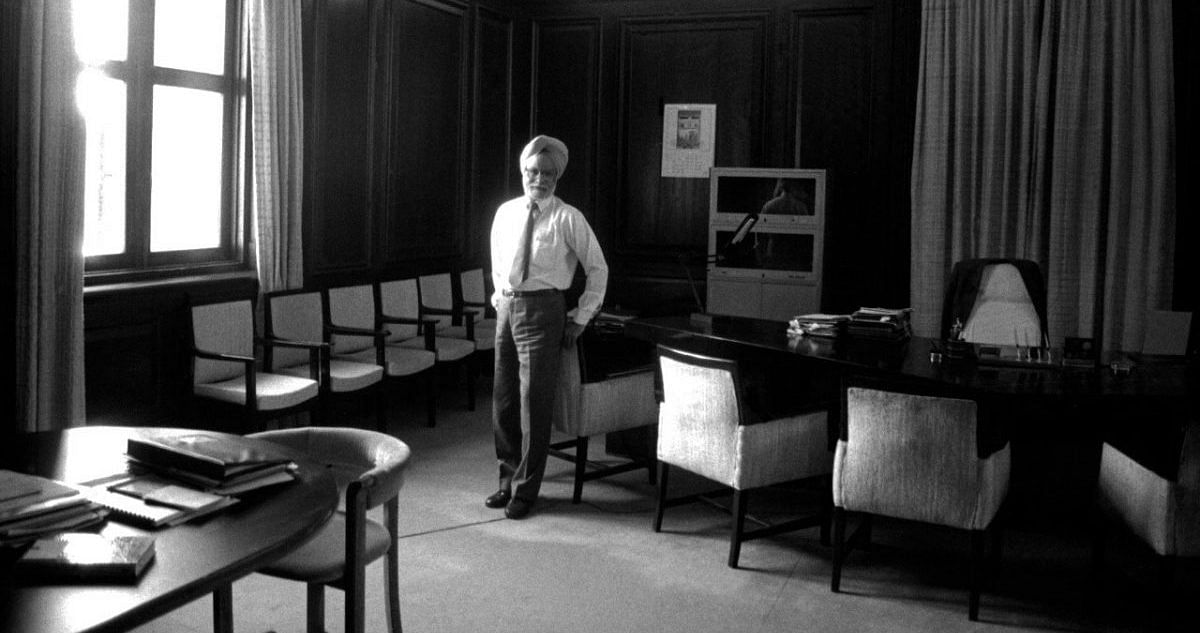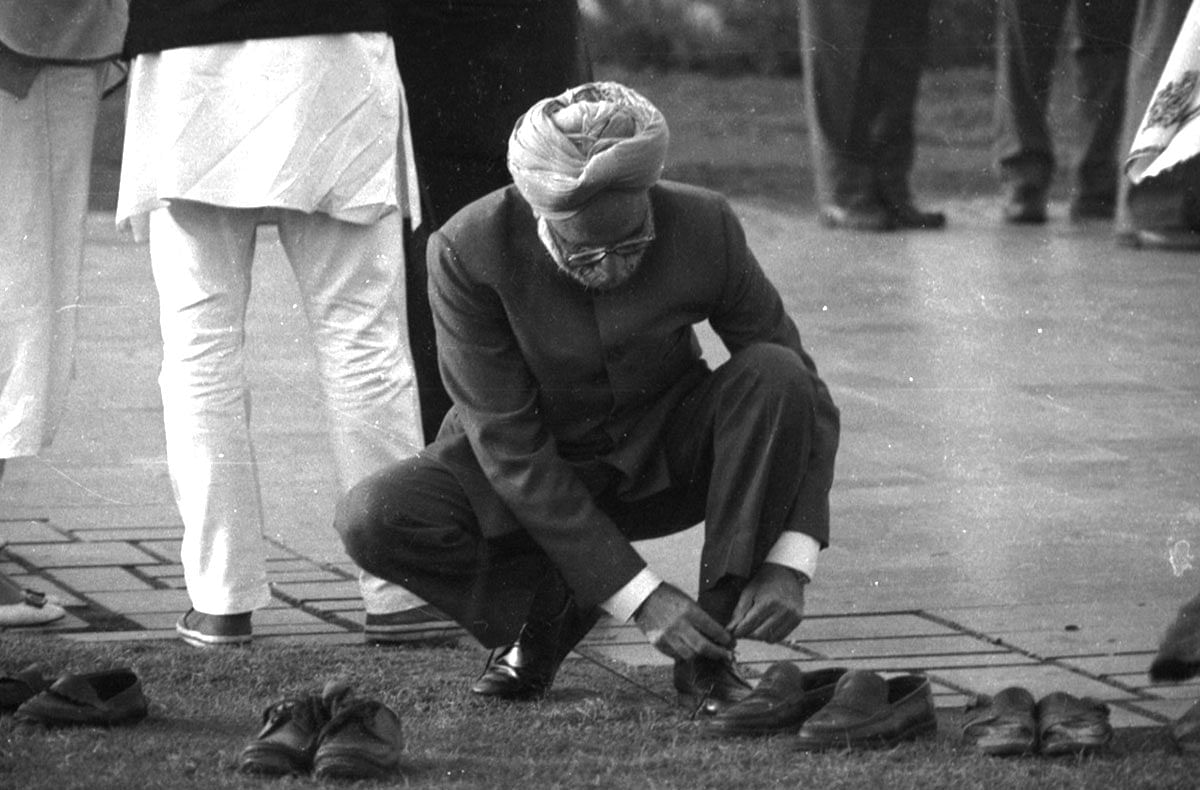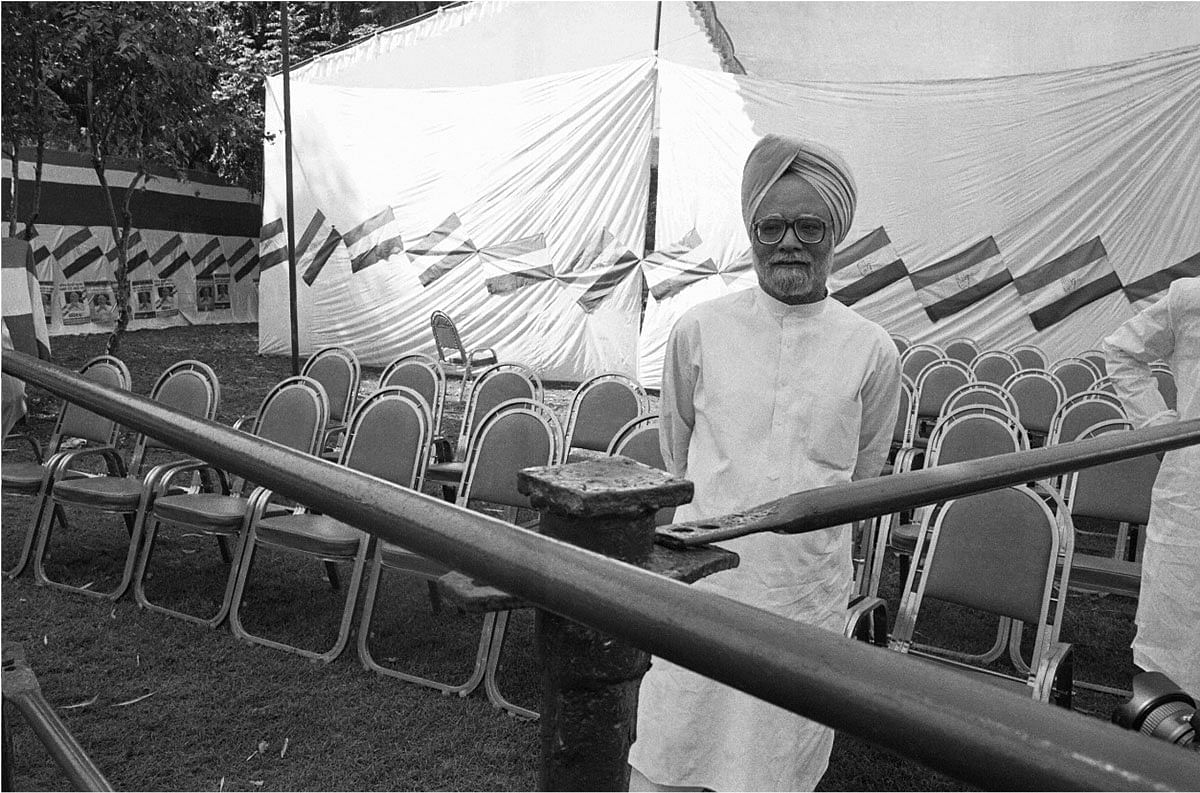The PM called attention to Singh arriving at parliament in a wheelchair in August 2023 to cast his vote against the national capital territory of Delhi (amendment) bill, 2023. âIt doesnât matter who he (Singh) was supporting. I believe that he was supporting our democracy,” said Modi.

Globally, Singh has been hailed for liberalising the Indian economy as finance minister in the Narasimha Rao government. As PM for two terms, Singh often took on his party leaders and even put his government at stake as he stood by the Indo-US civil nuclear deal, believing it would benefit the country.Â
Liberalising economy
Many have written and talked about Singh’s role in the government, but his record as a parliamentarian is noteworthy, too.
In his first parliamentary debate in 1991, Singh, as finance minister, said, âWe are faced with a balance of payments crisis of an unprecedented nature. Our foreign reserves have, despite significant borrowings from the IMF in July 1990 and January 1991, fallen to a very low levelâ.
He then presented a historic budget which liberalised the economy.Â
Calling himself a small man pushed into a big chair, Singh said, âGive us a few weeks, and we will show to the world that a new India is going to be born, that India has the capacity and the willingness and the courage to help itself out of the crisis.â

Days earlier, during debates on the topic, he answered harsh questions beyond 10 pm despite being busy preparing the budget. Â
His last full-fledged participation in a parliamentary debate involved the House, where he spent 33 years. Singh, in 2019, said, âWhen there is a criticism of Rajya Sabha, it is fundamentally a misunderstanding of its historic roles bestowed on this august chamber. It is our duty to ensure that no law is passed in haste and an atmosphere of heightened emotion.â
Also read: Manmohan Singh to end 33 years stint in RS on Apr 3; Sonia Gandhi to begin first
Pokhran-2 tests
Singh led the Opposition attack on several aspects between 1998 and 2004 as the leader of the House.
On the 1998 Pokhran nuclear tests, he said, “Until 11 May, there was a broad national consensus about the country’s foreign policy, defence policy and nuclear policy… I note, with regret, that this consensus has been sought to be disrupted by the events of 11 May and 13 May.”Â
While congratulating the scientists, Singh’s long speech warned the government “not to play politics” with defence or nuclear policy. âI once again submit to the government that it must enlighten us about its perception of the security threat. It is not enough, as I said, for the defence minister to quote from the ministry of defence reports, from the reports of the standing committees,” he said.Â
“If the government has no such doctrine, has not produced any such review, I think the impression will go around that the government has used these tests as a political lever to strengthen its hold on the people. I think that would be a sad thing,” he said.Â
In another debate four years later, Singh said, âEver since the Pokhran-2 nuclear tests, the Kashmir issue has been internationalised as never before.â
Also read: Modi praises Manmohan Singh, calls him âinspirationalâ ahead of tabling white paper on economy under UPA
Ayodhya Ram temple
During the discussion on Pokhran, Singh, while expressing concerns over Vishva Hindu Parishad (VHP) leader Ashok Singhal calling it a âHindu bombâ and calling for a “Hindu state”, commented on the Ram mandir issue.
Referring to news articles about efforts to build a temple in Ayodhya, he said, “If you carry on these activities (building pillars and dome), I submit to you that you will be endangering the nation’s cohesion and social equilibrium, which is necessary if this nation has to meet unitedly the challenge of economic and other sanctions that lie ahead.”
Though Singh did not participate much in the debates during the peak of the Babri Masjid demolition, he, as opposition leader on 6 December, 1999, said, â6 December, 1992, was a very sad day in the history of independent India when the Babri Masjid was demolished.”Â
Calling out the delay in proceedings of the trial court and the inquiry commission, he said, âAs a nation, Sir, we should also resolve that such events are never allowed to occur and all places of worship should be accorded the respect due to them consistent with our civilisational and cultural heritage, and values.â
While he did not name anyone then, in another debate about the 1984 riots a few days later, Singh attacked the former home minister. âWe all know Advaniâs past, what he did and how his actions in the Babri Masjid incident led to the massacre of thousands and thousands of people,â he said.
Singh’s comments that a public administration ridden by the RSS cannot be expected to protect secular values came on 28 February 2000 when he raised a topic in the parliament
âI rise to raise a discussion on the failure of the government of India to discharge its constitutional responsibility to protect secularism, which is one of the basic tenets of the Constitution of India, by not prevailing upon the state government of Gujarat to withdraw the circular,â said Singh, who called the order an attempt to destroy the âbasic edifice of a politically neutral civil service.”Â
Six years later, the Madhya Pradesh government issued a similar order when Singh was PM. But, the Congress did not oppose that.Â
Also read: Manmohan Singh, Rahul back Modi on Ukraine. Some things still work in Indiaâs broken politics
2001 Agra summit
Singh firmly believed in continuous dialogue with Pakistan, a policy his government maintained despite several troubling incidents. But, Singh had also ripped into the government as leader of the opposition for failing to gain anything out of the 2001 Agra Summit and instead helping then-Pakistan President Pervez Musharraf. â(The summit) would be a classic example, which would tell us, how not to conduct a summit dialogue,” Singh, in August 2001, said.Â
Questioning what the country achieved through it, he said, âThe failure of the summit reflects an inadequate preparation; but behind this inadequate preparation is the fact that this government has no consistent policy on Pakistan; it has no consistent policy on Jammu and Kashmir, as well.â
He claimed the summit ended with Musharraf in a more advantageous position than before. âOur invitation gave him a degree of legitimacy, which no other country was willing to provide. Secondly, Sir, he went on a highly successful publicity blitz to highlight the Kashmir issue and focus international attention on it,” he said.Â
“Thirdly, he (Musharraf) managed to hijack the agenda of the unstructured summit, pushing our country to the backfoot. Fourthly, he won the propaganda battle and provided added encouragement to the separatist and secessionist elements in Jammu and Kashmir in a manner not done before,â he added.
Continuing his attack, Singh said it was unsurprising that several people were saying “domestic compulsions”, including the NDA’s poor performance in state elections and the Tehelka revelations, drove it to organise the summit. “Several people have commented that no serious thinking had been done about our objectives, about our strategies for this summit,” he said.
Also read: Manmohan Singh was âfirm on govt mattersâ â book launch inspires lookback at highs & lows of ex-PM eras
2002 Gujarat riots
After the 2002 Gujarat riots, Singh criticised his successor’s handling of the situation in the parliament. Calling the riots âa great national tragedyâ and a âgreat national shameâ, Singh, in May 2002, said, âSir, here is an instance where for over two months the state government failed abjectly to restore law and order, where the fundamental human rights of innocent citizens continued to be violated, day after day.â
Quoting a newspaper report where the then PM had said that âthere is no need for any directive because the Gujarat government is doing reasonably well”, Singh said, âThis is an understatement of the year.” “This carnage in Gujarat goes on day after day for over two months. Is it proof that the Gujarat government is doing reasonably well?â he asked.
About Modi, he said, âWe have a chief minister who has the audacity to discriminate between the victims in Godhra and the victims elsewhere… Sir, for all these reasons, we cannot agree with the assertion that the government of Gujarat is doing all that needs to be done or should be done to bring the situation under control.”
Criticising the VHP, he said, âLooking at institutions or bodies like the VHP who preach hatred to the extent, which they are doing, it is a fit case where civil suits should be brought against those bodies or institutions, which incite communal passions, create situations of the type that have taken place in Gujarat.â
Anna Hazare movement
Led by Anna Hazare, the 2011 Lokpal bill movement is widely seen as the beginning of the fall of the Manmohan Singh government. One of the faces of that “anti-corruption” movement, Arvind Kejriwal, who then strongly criticised Singh, is now a Congress ally. Singh came in a wheelchair to the Rajya Sabha last year to support his cause.Â
A day after police arrested Anna Hazare, Singh said in the parliament on 17 August, 2011, â…I am not aware of any constitutional philosophy or principle that allows anyone to question the sole prerogative of parliament to make a law.â “The path that he (Hazare) has chosen to impose his draft of a bill upon parliament is misconceived and fraught with grave consequences for our parliamentary democracy,” he added.
By then, the government had introduced a bill in the Lok Sabha on setting up Lokpal and referred it to the standing committee.
About Hazare’s protest, Singh also said, âWe are now emerging as one of the important players on the world stage. Many forces would not like to see India realise its true place in the comity of nations. We must not play into their hands. We must not create an environment in which our economic progress is hijacked by internal dissension.”Â
Also read: Congress hasnât changed. Itâs still socialist, Manmohan Singh was just a flash in the pan
The last leg
Over the past couple of years of his government, Singh had to mostly put up a defence on issues such as investigation of coal block allocations by the Central Bureau of Investigation (CBI), financial impropriety and misappropriation in loan waiver scheme for farmers, and the economic situation in the country.Â
While Singh, as the opposition leader, attacked the ruling party on the economy, he also faced the most attacks on this front. âSir, the all-round failure of the government is the root cause of the serious price situation,â he said on 28 July, 1998, when he was leader of the opposition. Fifteen years later, in August 2013, he, as PM, said, “The country is faced with a difficult economic situation.â

After he left the PM’s office, Singh, from time to time, did make his presence felt though he participated in only eight debates since May 2014. Those covered topics like the Andhra Pradesh reorganisation (amendment) bill, 2015, the national register of citizens in Assam, the conditions of foreigners in the Silchar detention centre, and demonetisation.Â
He called demonetisation a âmonumental management failureâ and âorganised loot and legalised plunderâ in a hard-hitting speech against the Modi government.Â
âI urge upon the Prime Minister to find practical, pragmatic ways and means to relieve the distress of the people, who happen to be a great majority of our people,” he said.Â
(Edited by Madhurita Goswami)
Also read: Manmohan Singh and Modiâs 10-year economic legacyâMNREGA safety vs unsafe jobs in Israel

